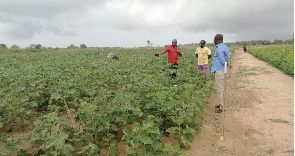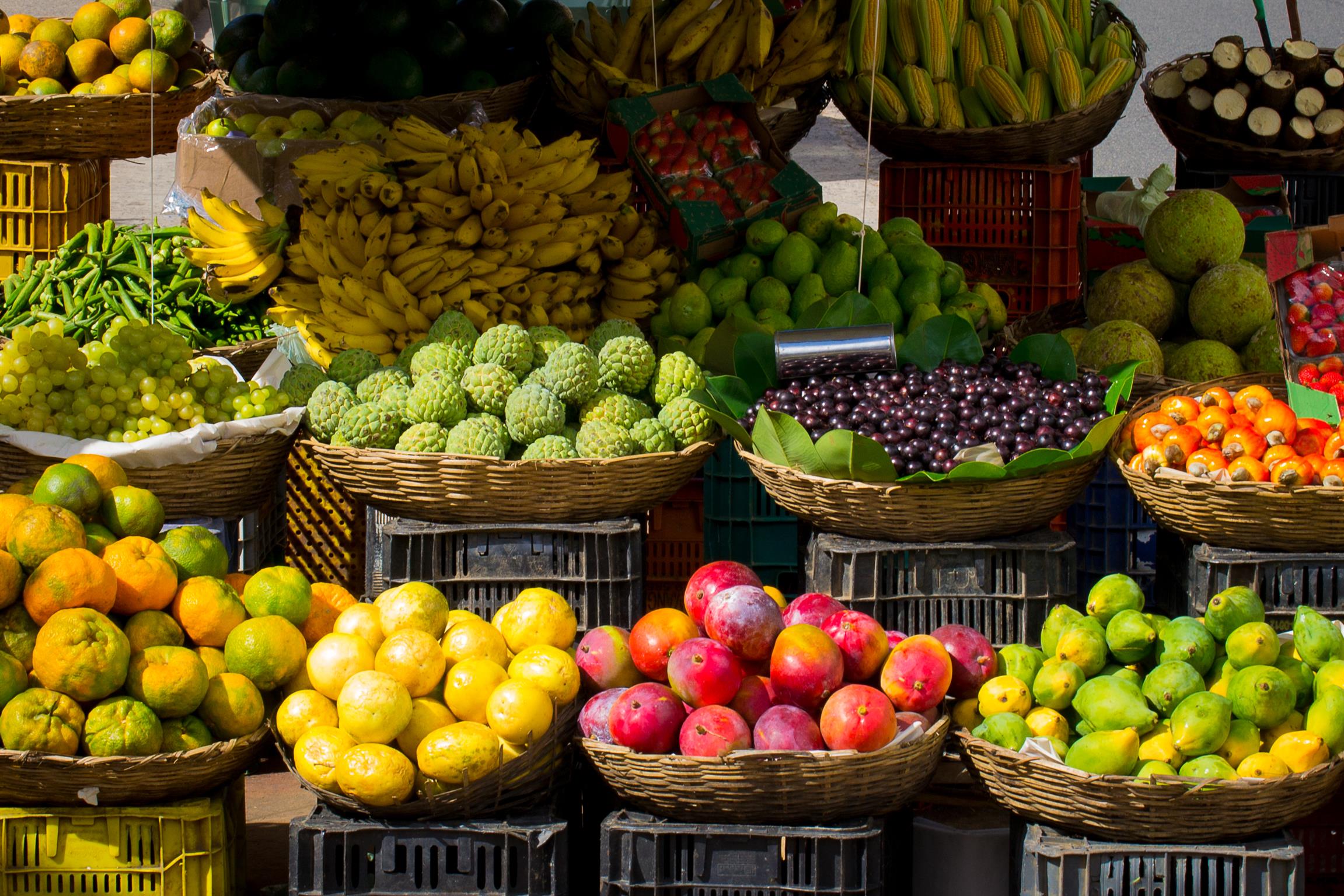Nest Agro Foods to Transform Vegetable Production in VR through Franchise Farming

The Volta Region is set to become the hub of fresh organic vegetable production in the country as efforts are underway to coordinate the efforts of farmers to produce on a large scale to meet the demands of the local market and for exports.
Through the method of what is referred to as franchise farming, Nest Agro Foods, an indigenous agribusiness company, which is spearheading the initiative, is meant to enable farmers to produce on a larger scale and be paid the right price for their produce to cover their cost and make an appreciable margin. By enlarging their farms, they will also require more hands to support, thereby creating jobs for the people.
The method is also aimed at fully utilising the potential of the region as far as arable land and access to water is concerned to produce vegetables which are in high demand both domestically and internationally.
This comes at a time when the government, under its Planting for Food and Jobs, is aiming to bring massive transformation to the agricultural sector which has not seen a significant growth in spite of its enormous potential.
According to the Chief Executive Officer of the company, Mr Mawutor Kumah, who spoke with the Graphic Business during a tour of the farming communities in the Volta Region last month, through franchise farming, farmers would be in a better stead to make more money from their produce to cater for themselves.
Franchise farming
Agricultural franchise can be defined as a right, permission, or licence (often established by contract) granted by an agribusiness firm (called the franchisor) to another agribusiness firm (the franchisee) to distribute, manufacture, and/or use the trade name of the former’s products and services usually in a specified territory for a specific duration.
Agricultural production is becoming more sophisticated. It is becoming more and more consumer-driven, and profit- seeking entrepreneurs can take advantage of what is happening. Farmers must become part of the system that is designed to guarantee quality and a uniform product for consumers.
The small farmer is mostly affected by low yields, high cost of production and low price realisation. Farmers can, however, be assisted to cut down on their cost of production and marketing; providing stable and remunerating market access and improving price realisation and increasing yields.
Franchise farming is another element in the restructuring of American agriculture which has occurred over recent decades. There have only been few experiments in franchise farming in Europe and part of India, but this business model is not known in Africa. Franchise farming can help to develop a lot of farming models in Africa and make farming very lucrative and competitive.
Franchise farming will enable farmers to compete effectively in the marketplace and take advantage of economies of scale. A franchised network can buy products on more favourable rates than buying same from an individual farmer.
Franchise farming will also help farmers access quality training and assistance, multiplier effects of learning and transfer of management skills. If farmers continue to use outdated management techniques, their competitive advantages based on favourable climate, rich soil and abundantly available inputs will not be transformed into economic success.
Franchise farming also helps farmers to solve financial investments through reducing transaction costs and improving execution of agricultural credits. The development of a network can provide a powerful bargaining tool with suppliers and financial institutions to negotiate favourable rates.
Meeting with farmers
Speaking to a large number of vegetable farmers in the region, Mr Kumah explained that coming together as one unit would give them a unique opportunity to produce at lower cost, through uniform and tested methods and structured methods.
“It will also make it possible for planning because our collective productive capacity is enhanced in the process. We have, therefore, designed this model to seek an ambitious plan of making Volta Region a vegetable and food processing hub,” he said.
Nest Agro Food’s objective
Mr Kumah said: “Our proposal is to use this unique design called franchise farming to change the face of vegetable farming in the Volta Region starting from the Keta Vegetable Farmers and Marketers Association.”
He said the company had developed A franchise farming module to help farmers implement best practices, improve their yield and provide market structure that gives them true value of the crops they produce.
The company is also determined to rope the entire farming community in the association, the grouping of farmers in the vegetable production space, to buy into the concept.
“We work with members of the association because our system is leaned on structures and with good structures we are able to follow through with our programmes with proper planning and implementation. Our solution is an integration module that will for the first time move all farmers outside the structured farming systems and marketing, into a new era of Planting for Food and Jobs,” he said.
The farming module is designed to turn vegetable into commercial crop and make it possible for farmers to produce at desirable levels.
Mr Kumah said “Although this model fits perfectly with the vegetable farmers, we believe other farmers also have the opportunity to use this system to bring together farmers of similar crops to exploit all the advantages that economies of scale offer when they decide to work under a structured system.
Conclusion
Nest Agro Foods and Keta Farmers Association have realised that working together will bring out the best for their mutual benefits.
Working as one is a giant step to self-sufficiency for vegetable production in Ghana with the plan to expand production levels to meet the demands of the export market. The company seeks the needed support in order to plant and generate the desirable outcomes that the nation desires in the wake of frantic efforts by the government to return the sector to its former glory.
Source: graphiconline.com.gh





